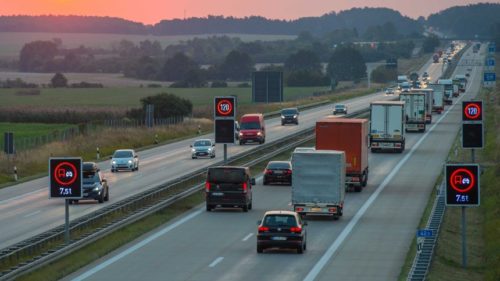Who’s gonna drive you home tonight?
Controversy in the German car industry

The famous German Autobahn (Spiegel.de)
Recently, I stumbled upon a quote from the famous German poet and dramatist Bertolt Brecht, in which he states that the worst illiterate is the political illiterate. However, nowadays even the most politically illiterate people know that Germany is the largest European economy, and basically the so-called engine of Europe. The crown jewel of the mighty German economy is their world-famous car industry, being one of the biggest employers in the country, with more than 820,000 people working in the industry and 500,000 workers that contribute indirectly. Needless to say, these workers carry a huge political weight.
Germany has so far massively profited from the common market of the European Union, and as the founding member of the EU, it is very well aware of all the advantages the EU brought to the country. It is a rich country with a low unemployment rate and is consistently praised for its economic progress, although the East and West divisions remain, as visible in the recent German elections. Many guest workers in Germany found a job working for a car manufacturer, and some of them, like the SPD’s Bundestag Member Josip Juratovic, ended up in politics.
German products are perceived throughout the world as a sign of quality. Only Mercedes, Audi and BMW control around 80 percent of the luxury vehicles market. In the South Slavic countries, a remark that a German produced something is a sign of quality, and is extended even to furniture or food products. So too in sports, Germany is very well respected, and football fans surely remember the legendary Gary Lineker joke that football is a simple game where Germans always win. Germans love their cars and are proud of their highways, which serve as a sign of their power and development. It was even recognized by artists, such as their legendary electro pioneers Kraftwerk with the song Autobahn. However, the discovery of the Dieselgate scandal definitely changed the German car industry forever.
In September 2015, Volkswagen was found guilty by the US environmental agency EPA to have unlawfully deployed many of their diesel engines to activate regulators during testing to mask their true amount of NOx emissions. The real-world amount was up to 40 times than displayed in testing, which is devastating for public health. A minimum of 38,000 people die early each year due to the diesel vehicles exceeding the emission limits. It mostly happens in Europe, and deaths are mostly due to heart and lung diseases. Debates on the issue are going on, but the problem still remains to be solved, as the emissions are rising every day. If the issue fails to be addressed, it could cause 174,000 deaths in the next 25 years.
This summer the German weekly Der Spiegel discovered that in the 1990s the main German car manufactures had a cartel-type of agreement to price-fix a control substance called AdBlue. AdBlue is a liquid solution used to counteract a vehicle’s emissions. The accusation continues to grow, and hence, German politicians had to address the issue in their recent electoral campaign. Chancellor Angela Merkel stated that a lot of trust has been destroyed, while her defeated challenger Martin Schulz attacked the industry and blamed the lack of responsibility of its managers. However, connections between business and politicians are well-known. Also, the car industry is a regular donor to political parties, especially the ones perceived as pro-business.
So what is happening nowadays? The European Commission has stated that it is taking the matter seriously and the EU’s antitrust officials widened an investigation through inspecting the top German carmakers. Last week BMW was targeted, this week Daimler, Volkswagen and Audi. The Commission stated on Monday that they carried out these inspections to gather evidence on violation of the EU antitrust rules, which strictly forbade cartel behaviour. The car manufacturers are claiming that they are fully cooperating on the matter and would like to even serve as principle witnesses, to avoid the enormous fines. German political parties have been heavily undermined by the issue, and it will also have an effect on the German government coalition talks, as the environmental Greens previously criticized Angela Merkel for protecting the car industry. The EU as such, wants to prove through these cases that it is a role-model for protecting consumer rights and transparency, as the German MEP Jo Leinen recently claimed in a piece for Euractiv Germany.
To conclude, there are two lessons that the car industry will have to learn. The first one is that you need to be transparent towards your customers, understanding the importance of consumer rights and offering them premium quality products. The second one is that image, reputation and trust takes years to build, but can be ruined in a moment. A recent opinion poll found that 57% of Germans lost trust in the industry, while two-thirds of them felt that the connection of carmakers with politics is still too deep. The lesson that we should learn is that we should be grateful for investigative journalism, and having journalists having the courage to reveal stories that serve in the public interest. Unfortunately, last week’s brutal murder of Daphne Caruana Galizia only shows us how some journalists have lost their lives trying to fight for the public interest and a better tomorrow.

German Chancellor Angela Merkel at a Motor Show (Daily Mail)
